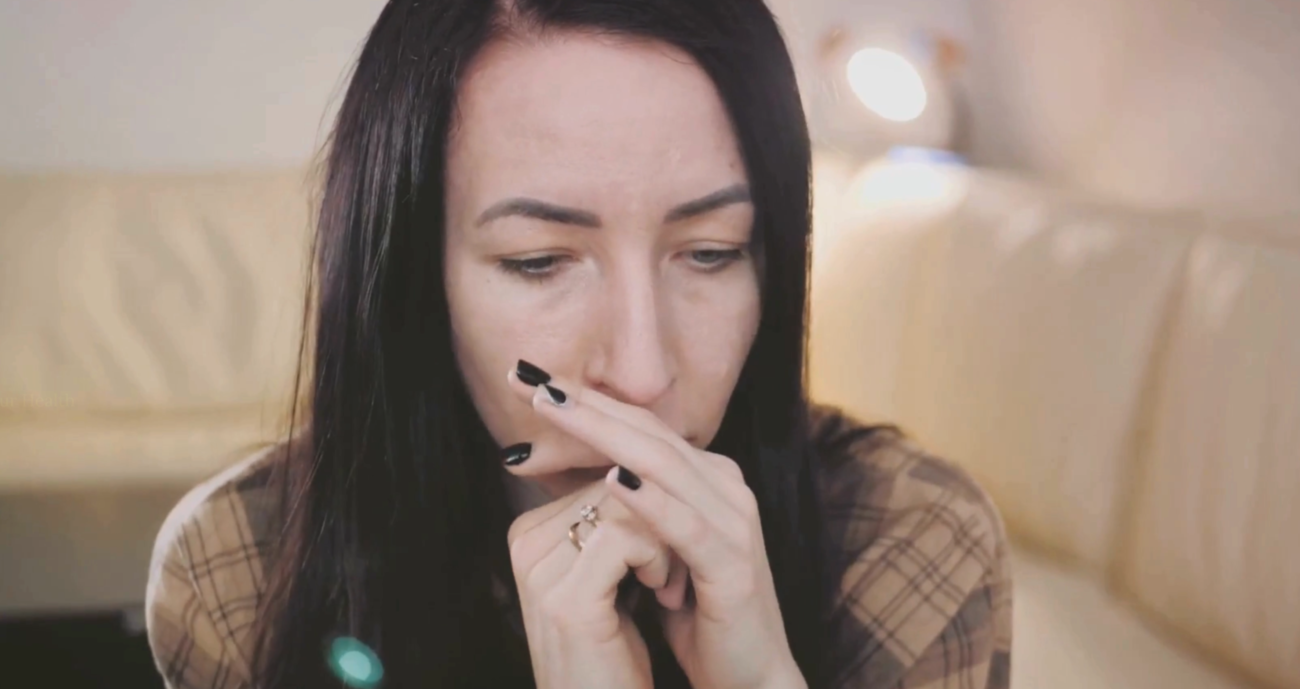Negative Self-Talk Triggers of Anxiety
Negative self-talk refers to the inner dialogue or thoughts that are critical, pessimistic, and damaging towards oneself. It is a common characteristic triggers of anxiety and can manifest in different forms and intensities. This type of self-talk often stems from negative beliefs about oneself, past traumas, societal pressure, or distorted thinking patterns.
There are various types of negative self-talk that individuals with anxiety may experience. One common form is catastrophising, which involves exaggerating the severity of a situation and imagining the worst possible outcomes. For example, someone with anxiety may have thoughts like “If I fail this exam, my entire future will be ruined.” This type of thinking only fuels anxiety and increases distress.
Another form is personalisation where a person believes that everything bad that happens is their fault. They tend to take responsibility for events or situations outside their control and constantly blame themselves for it. For instance, an individual with social anxiety might think “My friends didn’t invite me out because they don’t like me” even though there could be other reasons for them not getting invited.
Overgeneralisation is another harmful type of negative self-talk where one takes one negative event as evidence that all future events will have similarly adverse outcomes. For example, if someone with generalised anxiety disorder has a panic attack while public speaking once, they may conclude “I’ll never be able to speak in public without having an episode.”
Labelling oneself harshly is another form of negative self-talk where individuals use derogatory terms to describe themselves rather than describing specific behaviours or actions. This leads to low self-esteem and reinforces anxious feelings. For instance, instead of saying “I made a mistake,” someone suffering from anxiety might say “I am such a failure.”
These are just some examples; however, there are many other ways in which negativity can infiltrate our thoughts and emotions when we struggle with anxiety. The intensity and frequency of these cognitive distortions vary from person to person, and some individuals may experience a combination of different forms.
Negative self-talk can have significant consequences on an individual’s mental health and well-being. It contributes to the maintenance of anxiety symptoms by reinforcing negative thoughts and feelings. It can also lead to avoidance behaviours, reduced motivation, isolation, and a diminished sense of self-worth.
Dealing with negative self-talk is essential in managing anxiety. This involves recognising these thoughts when they arise and challenging them with more realistic and compassionate alternatives. Seeking professional help through therapy or support groups can also be beneficial in identifying and changing harmful thinking patterns.
Negative self-talk is a common aspect of anxiety that can manifest in various forms. Being aware of its existence and addressing it proactively is crucial for managing anxious feelings effectively. Remember that our thoughts are not facts, and we have the power to change how we think about ourselves.

Social Anxiety
Social anxiety, also known as social phobia, is a common form of anxiety that affects millions of people worldwide. It is characterized by an excessive and persistent fear of being judged or evaluated negatively by others in social situations. This fear can be so intense that it often leads to avoidance of social interactions and can significantly impact daily life.
The exact cause of social anxiety is not fully understood, but research suggests that it may be caused by a combination of genetic and environmental factors. People with a family history of anxiety disorders are more likely to develop social anxiety. Additionally, traumatic experiences or negative past events in social settings can also contribute to the development of this condition.
One of the most challenging aspects of living with social anxiety is the constant fear and worry about how others perceive us. Individuals with this disorder often have low self-esteem and struggle with feelings of inadequacy, which further fuels their fears. They may believe that they are constantly being judged or scrutinized by others, causing them to feel self-conscious and anxious in almost all types of social situations.
The symptoms associated with social anxiety can manifest both emotionally and physically. Emotionally, individuals with this disorder may experience intense feelings of fear, nervousness, and overwhelming worry in various social environments. Physically, they may exhibit symptoms such as sweating profusely, trembling or shaking, blushing or hot flashes, rapid heart rate or palpitations, difficulty breathing or tightness in the chest.
These symptoms can occur anytime someone who struggles with social anxiety perceives themselves to be under scrutiny in a group setting – whether at work meetings or presentations; during intimate gatherings like birthday celebrations; even while running errands at the grocery store. The constant worry about being judged can turn everyday activities into stressful experiences for individuals dealing with this type of disorder.
Unfortunately for those who suffer from it, many people misunderstand the nature of this condition and may not realize how debilitating it truly is for individuals to live with social anxiety. They may consider it as mere shyness or a lack of confidence, but in reality, it is an actual medical condition that requires professional help and support.
In the next section, we will delve deeper into other forms of anxiety disorders to provide a more comprehensive understanding of how this mental health issue can manifest itself differently in individuals.

Panic Attacks
Panic attacks are a common form of anxiety that can be debilitating for those who experience them. They are defined as sudden and intense feelings of fear or apprehension that can occur without warning. Panic attacks can be triggered by various factors, such as stressful situations, traumatic events, or even the physical symptoms of anxiety.
The symptoms of a panic attack typically peak within 10 minutes and usually last for about 20 to 30 minutes. However, some individuals may experience prolonged episodes lasting up to an hour. During a panic attack, you may feel like you are losing control or having a heart attack, which leads to an overwhelming sense of dread.
There are various physical and psychological symptoms associated with panic attacks. These include rapid heartbeat, shortness of breath, chest pain or discomfort, dizziness or lightheadedness, trembling or shaking, sweating, chills or hot flashes, nausea or abdominal distress. Individuals experiencing panic attacks may also report feeling out of touch with reality or detached from their surroundings. This can lead to feelings of unreality and detachment from oneself and one’s surroundings.
One key sign that distinguishes a panic attack from other forms of anxiety is the sudden onset in combination with the severity of symptoms. Many people describe it as being hit with intense feelings all at once without any prior warning signs.
Panic attacks can happen anytime and anywhere which makes them particularly frightening for those who suffer from them on a regular basis. The unpredictability can also lead to individuals avoiding certain places or situations that they associate with previous panic attacks – leading to agoraphobia (fear of public spaces) in more severe cases.
It is important to note that experiencing one episode does not necessarily mean you have a diagnosed disorder; however recurring incidents warrant further evaluation by a mental health professional who specializes in treating anxiety disorders.
If you are struggling with frequent panic attacks and find yourself avoiding situations because they may trigger another episode – it is crucial to seek help and support. Panic attacks can be effectively managed through therapy, medication, and self-help techniques such as deep breathing exercises, mindfulness, and relaxation techniques.
Panic attacks are a form of anxiety that can occur without warning and leave individuals feeling overwhelmed by intense feelings of fear or dread. It is important to recognize the symptoms of a panic attack and seek appropriate treatment to manage them effectively. With proper support and coping strategies, individuals can learn to overcome their panic attacks and live fulfilling lives without the constant fear of another episode.
Emotional Symptoms
When it comes to anxiety, many people often focus on the physical symptoms such as racing heart or shortness of breath. However, the emotional symptoms associated with anxiety are equally important and can greatly impact a person’s daily life.
One of the most common emotional symptoms of anxiety is excessive worry or fear. Individuals with anxiety may find themselves constantly anticipating a negative outcome in various situations or feeling overwhelmed by irrational fears. This worry can be debilitating and make even simple tasks seem daunting.
Another emotional symptom of anxiety is irritability or restlessness. Many individuals with anxiety experience a constant state of tension and agitation which can manifest into irritability towards others or difficulty staying still. This can lead to strained relationships and difficulty focusing on tasks at hand.
Difficulty concentrating is another common emotional symptom of anxiety. Due to the constant worrying and stress, individuals with anxiety may find it challenging to concentrate on work, school, or other activities. This can lead to decreased productivity and increased feelings of frustration.
Moreover, feelings of guilt or self-doubt are also prevalent in those with anxiety. Constantly worrying about past decisions or blaming oneself for things that are out of their control can create a sense of inadequacy and low self-esteem in an individual’s mind.
Symptoms such as loss of interest in previously enjoyable activities, changes in appetite, and sleep disturbances are also linked to emotions associated with anxiety. These symptoms can further exacerbate anxious feelings and negatively impact overall well-being.
Perhaps one of the most debilitating emotional symptoms of anxiety is panic attacks. Those who experience panic attacks report intense periods of fear accompanied by physical sensations like chest pain, dizziness, and trembling. Panic attacks often come without warning and leave individuals feeling completely out-of-control.
Social isolation is commonly seen among individuals struggling with anxious thoughts and emotions. The constant worry about how others perceive them may cause people to avoid social situations altogether, leading to loneliness and further worsening their mental health.
It is crucial to understand and recognize the emotional symptoms of anxiety as they can greatly impact an individual’s day-to-day life. If you or someone you know is experiencing any of these symptoms, it is important to seek professional help for proper diagnosis and treatment. Remember, dealing with anxiety is not a sign of weakness, and seeking help is a brave step towards better emotional well-being.
Vitamins can balance your daily life
Social Factors
Anxiety is a complex mental disorder, and its development is influenced by various factors. While some of these factors are internal, such as genetics and brain chemistry, there are also external influences that can contribute to the onset and severity of anxiety. Social factors play a crucial role in shaping an individual’s experience with anxiety.
One significant social factor that can contribute to anxiety is one’s environment or upbringing. Childhood experiences, relationships with caregivers, family dynamics, and overall social support can all impact an individual’s susceptibility to developing anxiety later in life. Being raised in an unstable or chaotic household can lead to feelings of uncertainty and insecurity, which may manifest as anxiety symptoms in the future.
Social pressures also play a role in the development of anxiety. In today’s society, there is immense pressure to conform to certain standards and expectations set by peers or societal norms. This pressure can lead to feelings of inadequacy, self-doubt, and performance anxiety. Additionally, social media has become a ubiquitous presence in our daily lives, creating a constant comparison between ourselves and others’ seemingly perfect lives portrayed online.
Furthermore, cultural influences have been found to impact how individuals perceive and experience anxiety. Certain cultures may stigmatize mental health issues like anxiety disorders or view them as weaknesses instead of valid medical conditions. Such beliefs may prevent individuals from seeking help for their symptoms due to fear of judgment or shame within their communities.
Relationships also play a significant role in shaping an individual’s experience with anxiety. Negative interactions with friends, romantic partners, or coworkers can trigger feelings of stress and insecurity that exacerbate existing anxieties or create new ones altogether.
Traumatic events such as abuse or violence can profoundly impact an individual’s mental health and increase their risk for developing various forms of anxiety. These experiences not only disrupt one’s sense of safety but also leave lasting emotional scars that make it challenging to cope with everyday stressors effectively.
In conclusion,
social factors are just as crucial as internal factors in understanding and managing anxiety. These external influences can shape an individual’s perceptions, beliefs, and behaviors surrounding anxiety, making it vital to address them in treatment. Through awareness and support from loved ones, individuals with anxiety can learn to navigate social pressures and create a healthy environment that promotes their well-being. Additionally, destigmatizing conversations about mental health within our communities is essential in creating a more supportive and inclusive society for those struggling with anxiety disorders.

Genetic Predisposition
Genetic predisposition refers to the likelihood of developing a certain condition or trait based on one’s genetic makeup. In the case of anxiety, genetics play a significant role in determining an individual’s susceptibility to developing this mental health disorder.
Studies have shown that individuals with a family history of anxiety disorders are more likely to experience anxiety symptoms themselves. This is due to the fact that certain genetic variations and mutations can make some people more susceptible to developing anxiety than others.
A study conducted by the National Institute of Mental Health (NIMH) found that 30-40% of the risk for developing an anxiety disorder can be attributed to genetics. This means that if someone in your immediate family has been diagnosed with an anxiety disorder, you are up to five times more likely than the general population to develop it as well.
But just having these genetic variations does not guarantee that an individual will develop an anxiety disorder. Environmental factors, such as traumatic experiences or chronic stress, also play a crucial role in whether or not these genes will be expressed.
For those with a strong genetic predisposition for anxiety, even minor environmental stressors can trigger intense feelings of worry and fear. On the other hand, individuals without this predisposition may not be as affected by similar stressors.
It is important to note that there is no single gene responsible for causing all types of anxiety disorders. Instead, research suggests that there may be multiple genes involved in increasing one’s risk for different forms of anxiety.
Some studies have also identified specific gene variants associated with increased risk for certain types of anxieties, such as panic disorder or social phobia. For example, researchers have found links between variations in serotonin and dopamine receptors and increased risk for specific types of anxieties.
In addition to genetics influencing one’s susceptibility towards anxiety disorders, it can also impact how someone responds to treatment. For instance, some individuals may respond better to therapy while others may benefit from medication options due to their genetic makeup.
Understanding the role of genetics in anxiety can help both individuals and mental health professionals better identify and manage this disorder. While we cannot change our genes, being aware of our genetic predisposition towards anxiety can help us take control of our mental health and seek necessary support when needed.


3 thoughts on “Triggers of Anxiety In Many Variations and 1 Guide To Solve part-4”